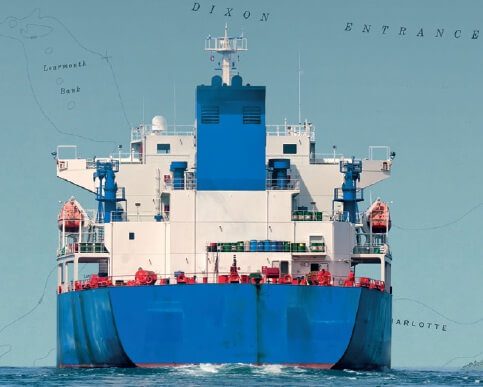March 10, 2012 – In today’s Ottawa Citizen, MLI’s Brian Lee Crowley writes about the greater degree of freedom Canada now enjoys in its relationship with the U.S. The full column below:
Regardless who wins the U.S. election in November, Canadians will be holding more cards than we have in the past, writes Brian Lee Crowley
By Brian Lee Crowley, Ottawa Citizen, March 10, 2012
Given the buffoonery of the U.S. primaries, the Nov. 6 election can seem agonizingly far off. It will, however, be upon us before we know it. Then the really interesting times will begin, for while we cannot vote for those who will have a share of power in Washington, we can and must think about how to manage the new cast of characters to Canada’s advantage. And not only will there be new players in the White House and on Capitol Hill, but they will be dealing with a different kind of Canada than in the past.
Don’t get me wrong: the odds today favour the re-election of President Barack Obama. His margin in the polls, however, is far from commanding and a Republican nominee such as Mitt Romney, with the ability to reach out successfully to independents and even some Democrats, would be highly competitive.
But even if Obama wins, much will be different. He will appoint at least some new cabinet members and other senior members of the administration, for example. But most importantly he will now be in his final term, insulated from further electoral calculations, at least where his personal future is concerned.
Furthermore while there will be new faces in both the House and the Senate, the rancorous partisanship of recent years is likely to deepen.
All of this makes thinking about managing our most important economic and political relationship complex enough. To those calculations, however, we must now add the new selfconfidence that Canadians feel, the new choices they have and the new points of friction with America.
Consider that Canada has become the darling of international economic observers for our management of our fiscal affairs and banking system, and how we emerged from the recent recession faster and stronger than any other major industrialized country.
Contrast that with the continued weakness in America, the unresolved housing bust, the stubborn unemployment and the continuing debt binge. Canada faces its own economic challenges, such as population aging, household debt and poor productivity growth, but does so from a position of relative strength, not weakness.
Now consider the greater degree of freedom we enjoy in trade. For years governments came to power in Ottawa promising to reduce our dependence on U.S. markets, and those same governments left office with the trade dependency deeper than ever. But as a result of continued American economic weakness and the rise of industrializing countries such as China, India, the Asian Tigers, Indonesia, Brazil and others, our trade dependence on the U.S. is lessening. In 2000 we sent over 87 per cent of our merchandise exports to the U.S. In 2010 it was about 75 per cent.
We are extremely unlikely ever to escape deep economic integration with the United States in manufacturing, because we don’t make much in the way of finished products in Canada. We tend to make pieces of larger products put together via a complicated production system spread throughout North America. Our relative degree of freedom to shift our production to other markets is rather small.
Not so with our natural resources, however, and those resources are far more likely to underpin our economic growth in the foreseeable future than manufacturing, even though manufacturing’s future here is brighter than many imagine.
Take natural gas. To date our assumption has been that our chief interest is to become integrated into a seamless North American energy market, feeding the consumers and industrial processes south of the border while importing American capital to pay for the necessary infrastructure. Today, however, thanks to the shale gas revolution, North America is awash in natural gas. The futures price is a paltry $2.30 U.S. per thousand cubic feet and is forecast to stay low for years to come.
Contrast that with the situation in, say, Japan where they have taken numerous nuclear reactors off-line following the Fukushima disaster and are filling the gap with, among other things, natural gas. Canadian gas sold in Japan would fetch a hugely higher price there than in North America. Canada’s trade interest, in addition to close and enduring ties to our chief market in America, is in selling more to Asian and other rising markets, but we have to build the infrastructure to get our products there. China and other industrializing countries are driving the rise in value of our resources, which we can sell anywhere.
Add to these considerations the diverging attitudes between our two countries on things like immigration and the desirability of natural resource development such as the Keystone XL pipeline, and Canada now finds itself in the unusual situation of having more choices than ever before in its relationship with the U.S.
Our degree of freedom is still mightily constrained, but it is real. Time to start thinking about what to do with it.
Brian Lee Crowley is managing director of the Macdonald-Laurier Institute, an independent nonpartisan public policy think tank in Ottawa: macdonaldlaurier.ca.





